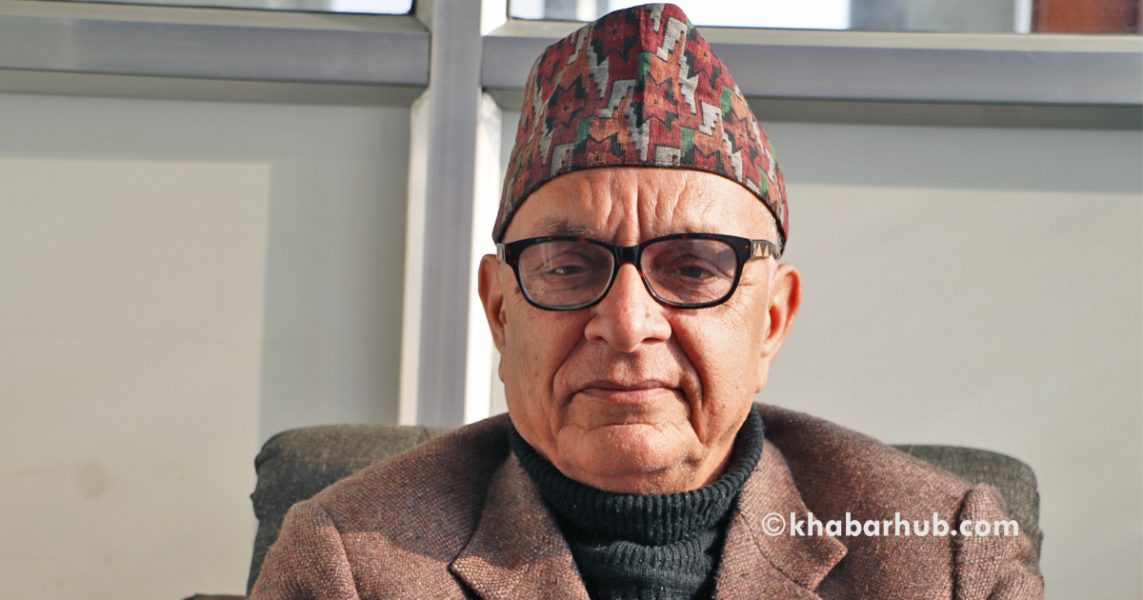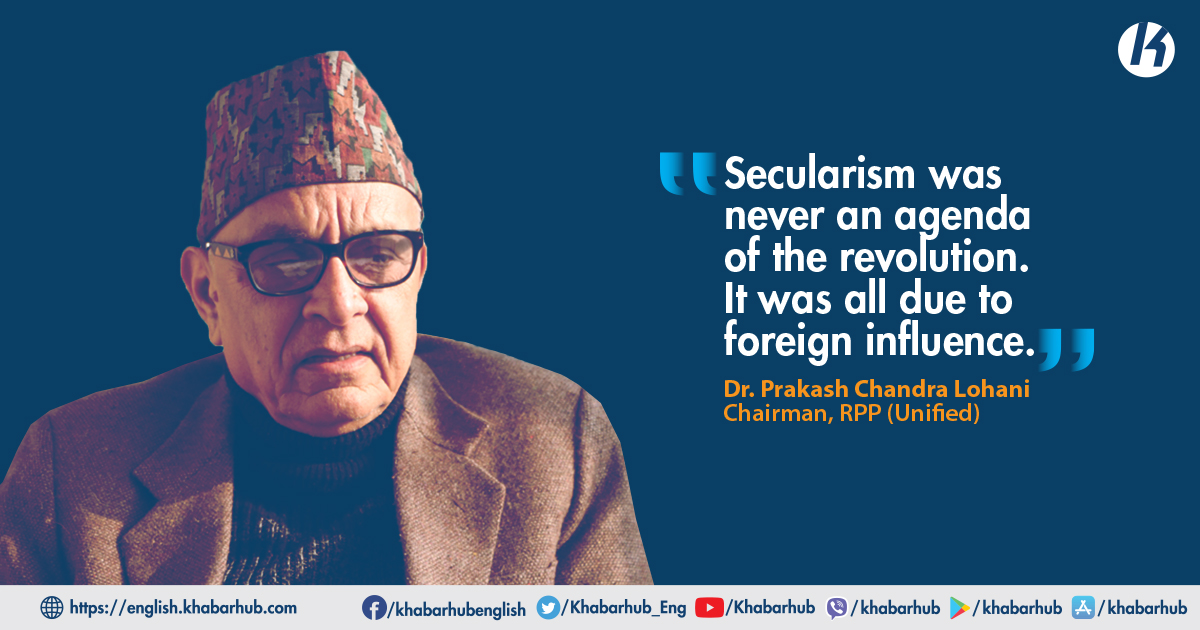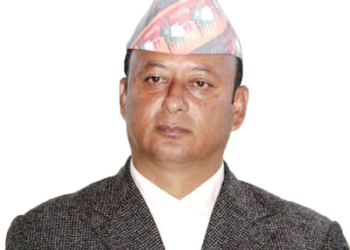Chairman of the newly formed Rastriya Prajatantra Party (Unified) Dr Prakash Chandra Lohani talks about bad governance and the government’s arbitrariness during an interview with Khabarhub. Soon after the unification between Ekikrit Rastriya Prajatantra Party (Rastrabadi) and Rastriya Prajatantra Party (RPP), former minister Dr Lohani feels the need of reviving the country as a Hindu state. Excerpts:
What is the unity for?
The government indulged in bad governance, which is against our expectation. It started taking every sector into its grip. To stop its arbitrariness, we needed to muster power. Therefore, party unity became a necessity.
What is the agenda to draw public attention in the newly formed party?
Identity as a Hindu country with religious freedom and a monarchial democracy agreed by all stakeholders shall be our main agenda.

Earlier you remained silent. But now you are raising the issue of Hindu and monarchy vociferously. Why so?
Secularism was never an agenda of the revolution. It was all due to foreign influence. The Minister for Home asked to change the name of barracks of the armed police force that were named after Hindu deities. Prime Minister sought blessing from the so-called daughter of Jesus Christ. This is a challenge to our religion and tradition. Therefore, we got united with the conviction that we now need to do something substantial.
You are talking of religion and monarchy even in the 21st century. Isn’t this an era of the public rule?
The nation failed to find its guardian in the President. The President is found loyal to a party. Therefore, the need for monarchy is strongly felt to continue the tradition where monarchy as an institution represents the Himalaya, hills and the Terai belt of the country.
Is there something more besides the party unity?
Mainly we are after earning political strength: in enhancing our capacity to confront the government with its arbitrary deeds and are mustering the power to end the bad governance through public pressure.
Should not a government elected by the public be tested with the mandated five years term?
The country has fallen into the vicious cycle of bad governance. Institutional bodies are rendered ineffective. There has been a massive abuse of authority. We have ample of cases: Ncell, land purchase by the Nepal Oil Corporation, purchase of the wide-body aircraft and 33 kg gold case, among others. Thus, the government no more retains the public trust. People are looking for a power that speaks against these mal-practices. That is why we got united.
Given your past, why should the public trust you?
We challenge those interested to examine our past. Whatever the ministry we held in the past, we performed well. While I was the minister for Foreign Affairs and also for Finance, there was a huge development in the banking sector, in land reform sector and in regulating Indo-Nepal border.
I believe that all political parties not representing the government will agree to the common agenda of the public. Since some of our interests do meet, we can launch a joint struggle on agreed agenda with NC and other parties.
Similarly, water route treaty from Kankarvitta of Nepal to Bangladesh and water route from the rivers of Nepal to Calcutta in India took place during my tenure. Furthermore, expansion of main roads in Kathmandu and reservation to various ethnic communities also took place in my tenure. Now let me ask, why and at whose interest did the once well-functioning factories like Birjung Sugar Mill, Janakpur Cigarette Factory, Hetauda Garment, and Trolley Bus Service among others get destroyed?
Why should people accept you as an alternate?
We are going to the public to voice their agenda. Even the Nepali Congress (NC) is also raising those issues. I believe that all political parties not representing the government will agree to the common agenda of the public. Since some of our interests do meet, we can launch a joint struggle on agreed agenda with NC and other parties.
Even some members of your party are dissatisfied with unity. Will such a unity result in a strong party?
It is not clear on the issue of their dissents. If it is regarding the position within the party, that shall be decided by the general convention within a year which shall also promulgate a new statue.









Comment